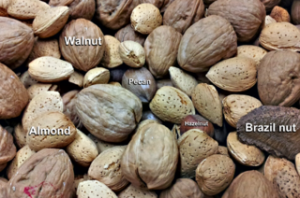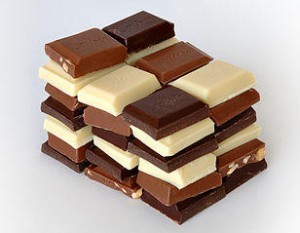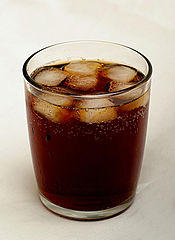Low Sodium, Potassium & Phosphorus Kidney Disease Diet
What is a kidney disease diet?
A kidney disease diet is more correctly known as renal diet. It includes changes in eating habits that aims to reduce the strain on the kidneys and minimize the imbalances that arise with kidney disease. There are three main points that need to be taken into consideration:
- Moderate fluid intake since the malfunctioning kidneys can cause fluid retention.
- Limit sodium, phosphorus and potassium intake since kidney dysfunction may cause high levels of these electrolytes.
- Reduce protein intake as the kidneys will be forced to work harder in removing its breakdown products.
Reducing protein intake and moderating the amount of fluids you consume may be relatively simple to understand and implement. However, many people are uncertain about how to reduce sodium, potassium and phosphorus levels.
Sodium, Potassium And Phosphorus
Electrolytes play various important roles in the body. Although commonly referred to as salts, electrolytes may also be acids and alkalis. These minerals are used at a molecular level for almost all processes within the body. Electrolytes is a substance with an electric charge and can dissolve within water. There are many different electrolytes within the body. Sodium, potassium and phosphorus are among the more common electrolytes found in the body.
Many people think that the only important electrolyte to limit in a renal diet is sodium. This is untrue. Controlling potassium and phosphorus levels are just as important. There is also a misconception that sodium only refers to table salt. This is inaccurate. Sodium, like phosphorus and potassium, are present in a wide range of foods and drinks. In fact the majority of Americans acquire most of their sodium from processed foods and not specifically from the table salt within it.
Sodium In The Body
Sodium is needed for many different reasons in the body. Cutting out sodium entirely is not possible with a healthy diet and it is not necessary. In fact too little sodium can be a problem. Sodium plays an important role in controlling blood pressure, maintaining the fluid balance within the body and in contractions of different muscles. However, when the kidney is diseased it cannot properly eliminate excess sodium. As a result sodium can accumulate in the body and cause fluid retention as well as strain the heart.
Potassium In The Body
Potassium plays a central role in the condition of nerve impulses and contraction of muscles. It is needed in the body to maintain health. However, as with sodium the levels need to be within an optimal range – not too high nor too low. The kidney maintains the potassium balance by eliminating excess potassium or conserving its excretion when potassium levels are low. As a result the diseased kidney may be unable to control potassium levels leading to high concentrations in the body, which among other effects can affect the rhythm of the heart.
Phosphorus In The Body
Phosphorus is another of the common electrolytes that plays various roles in the body. It is probably best known for its interaction with calcium in maintaining strong bones and teeth. Phosphorus is also important for the transmission of nerve impulses and contraction of muscles similar to potassium and sodium. When the diseased kidney cannot excrete phosphorus, it builds up in the body and also affects calcium absorption. This can lead to weakening of the bones. Furthermore normal nerve and muscle function may also be affected.
Foods To Eat And Avoid
Always speak to your doctor and if necessary consult with a registered dietitian or nutritionist who can assist with an appropriate eating plan for kidney disease. The renal diet takes many factors into consideration which may be individualistic. For example there may be specific amendments to the renal diet for people with heart disease, diabetes and obesity in addition to the kidney problems. Never make any sudden or major changes in your diet. A good starting point is to familiarize yourself with the ingredients listed on food labels and moderate or avoid foods that may increase your sodium, potassium or phosphorus levels.
For a quick guide, refer to the Diet for Renal Patients from the Medical College of Wisconsin.
Sodium
Here are some of the foods to avoid or consume in moderation to control your sodium levels.
- Processed foods like luncheon meats.
- Table salt and mixed seasonings.
- Cheese.
- Canned, dehydrated or preserved meats, fruits and vegetables.
- Bacon
- Nuts
Points to consider:
- Try to keep your sodium intake within the daily recommended level as indicated by a medical professional. Usually this figure is between 2g (2,000mg) and 3g (3,000mg) per day.
- Avoid foods that contain more than 500mg sodium per serving.
- Tend to opt for foods that have less than 150mg of sodium per serving.
Potassium
Here are some of the foods to avoid or consume in moderation to control your potassium levels.
- Meats may have high potassium concentrations but as part of the low protein diet it should be eaten in small quantities.
- Eat tropical fruits in moderation or avoid altogether. This includes fruits such as:
– Avocado
– Banana
– Citrus
– Mangoes
– Papaya - Raisin, prunes and dates, whether fresh or dried, can also be a problem.
- Be careful about most beans, greens and mushrooms.
- Coffee, tea, chocolate and chocolate drinks should be consumed in moderation.
- Starches like pasta, noodles and rice may also be a problem.
Refer to the potassium for chronic kidney disease diet from the National Kidney Foundation.
Points to consider:
- Fruit juice and the liquid from canned fruits, vegetables and meats may contain high levels of potassium than the food itself.
- Try to keep your potassium blood levels below 5.
- Consider serving sizes carefully since potassium is present in almost all foods. Too much of a low potassium food can therefore be harmful.
Phosphorus
Here are some of the foods to avoid or consume in moderation to control your phosphorus levels.
- Most dairy, whether it is milk or processed items like cheese.
- Beer, ale and cola soft drinks.
- Offals (animal organs like liver) and certain fish (carp, sardines).
- Nuts and processed foods with large concentration of nuts like peanut butter.
Points to consider:
- Aim to keep your phosphorus levels between 2.5 to 4 mg/dL.
- Medication known as phosphate binders can be used around meal time to reduce the amount of phosphate absorbed from food. However,a low phosphorus diet should still be followed.
- Monitor serving sizes because a large portion of low phosphorus foods can still be harmful.







